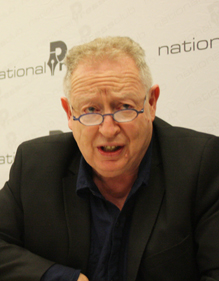|
Getting your Trinity Audio player ready...
|
 Minister of Finance Pravin Gordhan has shown that it is possible to hold those in public office to the highest standards of accountability and protect the integrity of public office and institutions. He has acted swiftly, professionally and transparently, in a manner that befits his high office and that of the office of the South African Revenue Service (SARS) commissioner.
Minister of Finance Pravin Gordhan has shown that it is possible to hold those in public office to the highest standards of accountability and protect the integrity of public office and institutions. He has acted swiftly, professionally and transparently, in a manner that befits his high office and that of the office of the South African Revenue Service (SARS) commissioner.
The same standard should be applied in all cases of alleged corruption and impropriety in the government to reinstil the public’s confidence in public officials and elected representatives who command public power and manage public resources.
Former SARS commissioner Oupa Magashule did not commit a crime. He resigned because his actions constituted a failure to promote and maintain a high standard of professionalism and ethical behaviour that is expected of someone in his position.
Too often, the mantra, "innocent until proven guilty", is trotted out to justify inaction or lengthy suspensions on full pay, as if to say that only proven criminal conduct is unacceptable.
However, Gordhan has firmly established that unimpeachable ethical conduct is the appropriate standard to be applied to high office.
If this was the standard adopted by other leaders in the public and private sectors, we would be well on the way to combating corruption and impropriety.
There are many instances in the private and public sectors where such high ethical standards and a transparent handling of allegations of corruption need to be applied. To name a few:
The endless disturbing revelations on the Nkandla upgrade, which indicate that public resources were inappropriately used to secure the private home of President Jacob Zuma. While Corruption Watch looks forward to the report of the public protector on the matter, we continue to insist that the report of the investigation should be made public. In the meantime, as with all cover-ups, evidence of impropriety and financial misconduct slowly seeps out, as if from a broken sewage pipe. The appalling lack of transparency that has characterised the government’s handling of this matter brings several high government offices into disrepute, including that of the Presidency itself.
The former minister of communications, Dina Pule, stands accused of serious nepotism and financial misconduct. She has been removed from the Cabinet, although, in marked contrast with the SARS matter, the public has not been told why she has been dismissed. Does her dismissal mean that she, too, will escape accountability for her apparent misconduct? And if she resigns from Parliament, will this mean that even the rather toothless parliamentary inquiry presently under way will be subverted?
No apparent action has yet been taken against Agriculture, Forestry and Fisheries Minister Tina Joemat-Pettersson, despite the public protector finding her guilty of breaching the executive ethics code by spending more than R420,000 at a guesthouse during the 2010 Soccer World Cup and another R151,000 of taxpayers’ money to fly her children home from a holiday in Sweden.
The office of the president, of the Cabinet, and all other public offices — and construction bosses please note, this includes high office in public companies — are institutions whose very foundation are built on the trust and credibility of South African citizens.
That trust has to be earned and it has been eroded by the clear absence of political will to confront corruption.
At the same time, there are clearly those in the highest reaches of the government who appreciate the need for public trust, and none more so than the integrity displayed and demanded by the minister of finance.
This does not mean that the public has to agree with all of the policies of the National Treasury.
But it does signal that the public can trust that policies and programmes that emanate from the Treasury have been developed in good faith; they are not covers for the private benefit of some or other senior public official.
Gordhan has shown that the highest ethical standard should be upheld by public office bearers and that the integrity of public institutions is the lifeblood of sound, democratic governance.
Let this become the standard against which other public and private sector leaders are measured. – David Lewis, executive director of Corruption Watch.
This article first appeared in Business Day. View the original here.








